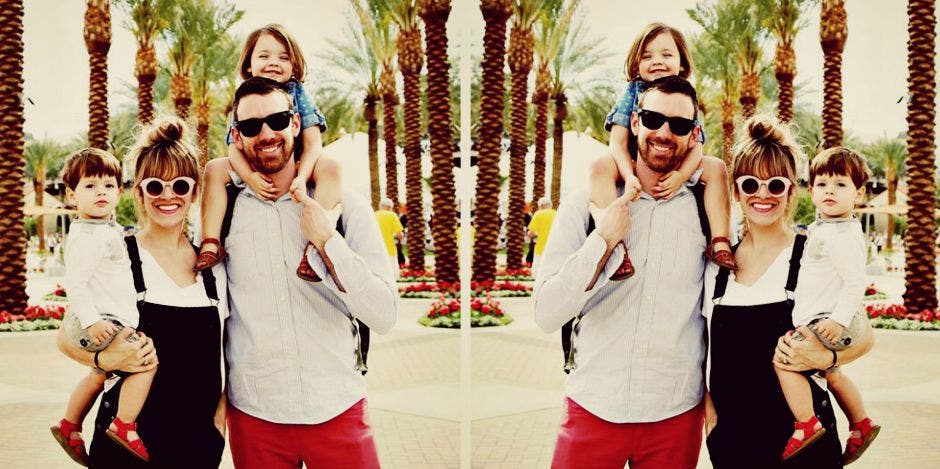5 Things You Need To Know Before Unschooling Your Kids
To unschool or not to unschool, that is the question.
 WeHeartIt
WeHeartIt As I refilled my hummingbird feeder and calculated the complicated fractions of teaspoons and ounces of water I thought to myself; "What a relief that I learned fractions in school!"
When I worked with two blended families in Washington State, they clung to a different idea; they believed that letting their kids discover what was interesting to them on their own and allowing (and encouraging) their children to find their own interests would provide them with the life skills needed for success.
They believed that healthy self-respect developed by avoiding harsh criticism, even though I later proved to them that self-respect doesn't need punitive schooling and requires a competence of self-respect in general.
They had the right idea; it's essential that your children feel good about themselves. However, what doesn't work is basing self-respect on magical thinking rather than the truth.
For a child or anyone to experience self-love, you must discover your unique gift and that is the greatest benefit of making the right choices with and for your children.
Understanding that your needs, the needs of your children and the needs of others are often similar and unique is the best way to create a strategy that'll satisfy everyone in the long run.
Here is a brief checklist for you if you're considering unschooling your kids:
1. Bring in support when it's needed.
Can you or your partner guarantee that your children will learn everything that they want to learn? Many children have a natural desire to read, write and learn the basic life skills offered in a good school.
If neither of you have the time, energy or patience to teach this, many parents that I work with hire tutors as the children become interested in subjects and pursuits that are beyond their own skill levels.
2. Understand the background of the US educational system.
Primary schools in the United States are by and large the copies of English school, created to train factory workers children to become the next generation of factory workers. This required certain components such as obedience, silence, diligence and consistency—exactly as the coal miners and textile laborers would need to be.
In 1960 A. S. Neill wrote the book, Summerhill: A Radical Approach to Child Rearing about the school that many unschooling parents dream about.
As a student at Hunter College Elementary School myself, I witnessed fascinating breakthroughs in freedom for students, including the freedom to make a lot of noise in the classrooms while being required to silently walk in straight lines in the corridors where we might "disturb other students."
Wikipedia's listing for Alexander Sutherland Neill includes his philosophies of freedom from adult coercion and community self-governance. The book was a common ancestor to activists in the 60s free school movement.
3. Realize that this is a social experiment.
According to the recent article in the Daily Telegraph in England, unschooling is on the rise there and it is certainly on the rise in the United States.
4. Don't forget about the risk factors.
Consider the risks as you would with any new idea. Do you use headgear when your child bikes? Do you use a car seat for younger children? Do you watch your children very carefully from a very close distance when they swim?
For many parents that would be considered "micromanaging" and for you unschooling may be a natural choice.
5. Imagine the long-term impact.
Remember to think through the possible long-term effects, detailed in The Telegraph article. So what about the long-term impact? As yet, there is no specific research.
However, in 2013 Boston College research professor Peter Gray surveyed 75 unschooled adults about the impact on their later lives. Few had serious complaints and 83% percent went on to higher education, but 11% felt left behind in one or more subjects and 21% reported social isolation.
The secret is creating a unique unschooling strategy that works for you own children.
Here are some options for you.
One of my friends turned her garage into a creative environment where her own children and friends' children could congregate and be exposed to topics that might interest them, motivating them to learn. The parents take turns offering interesting subjects, and experts are invited and paid to visit as well.
Two clients, who'd originally been convinced that unschooling was for them, were surprised when one of their daughters asked to go to school.
They began the process of finding a supportive and encouraging private school for her that's all about positive attitudes to learning. Visit here for more information on Heartspace® Coaching and Parenting.
For another client it was essential to realize that the time required for unschooling wasn't less than homeschooling, and in that moment the appeal of this new option diminished. From there it was a quick march to finding better schools.
Another former client created her own Nonviolent Communication® school based on the extraordinarily successful programs created by Dr. Marshall Rosenberg.
When you're committed to your children and when you focus on their needs, your needs and everyone's abilities and skills, you can find the best options for you and your family.
For more information on Heartspace® Coaching and for a complimentary 1 hour telephone session to investigate which form of education may be best for you please contact me at Heartspace Coaching.

